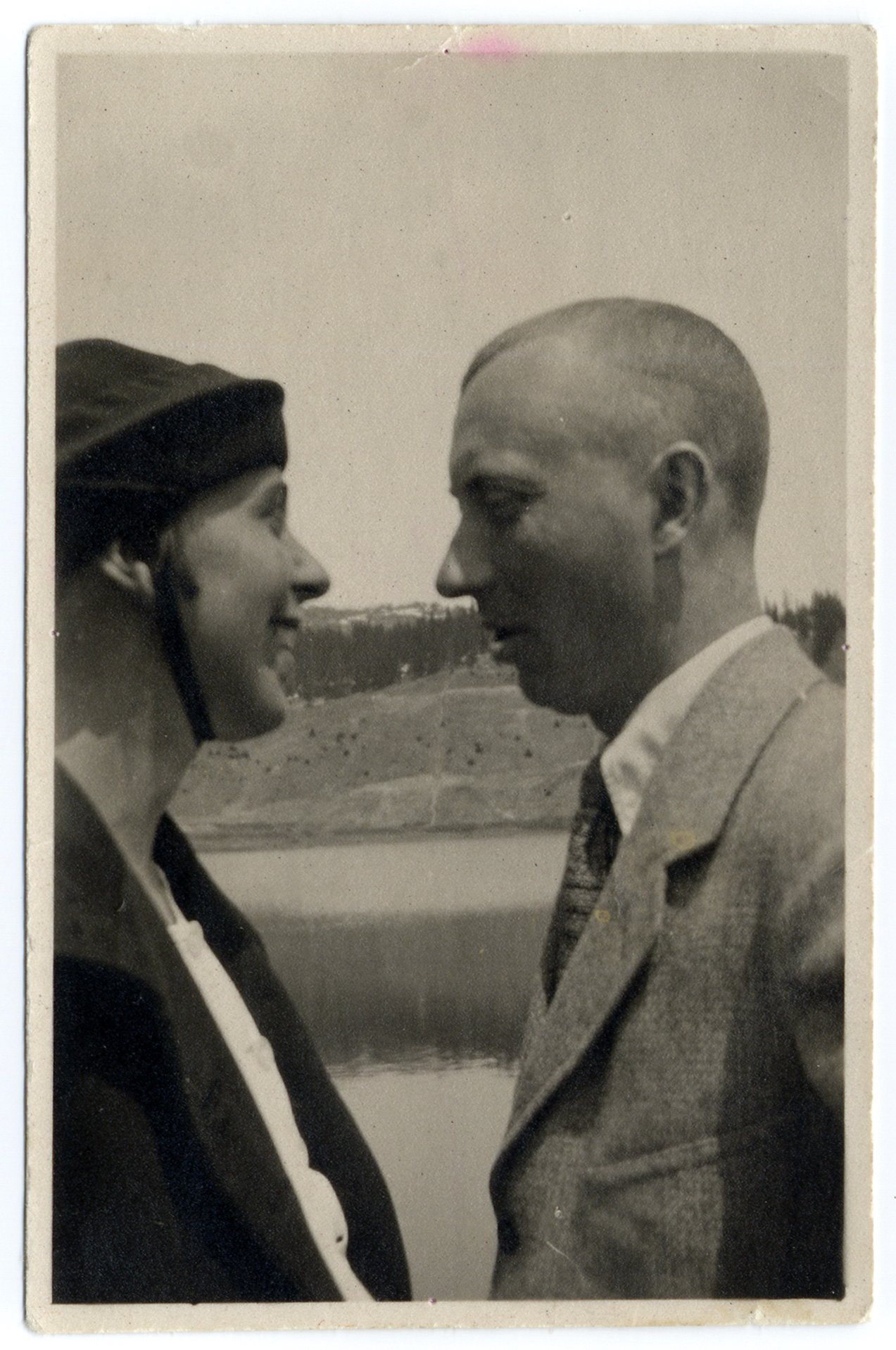
A show celebrating the Dada pioneers Jean Arp and Sophie Taeuber-Arp at Brussels’ Bozar, brings together artworks, design objects, and written documents from the couple whose professional relationship deeply informed their private life, and vice versa.
E. Linck, Sophie Taeuber and Hans Arp in front of puppets (1918) © SABAM Belgium 2024.
Hans Arp was a German-French artist born in 1886 in Alsace-Lorraine, an area historically contested between France and Germany. He adopted the name Jean after Alsace became French territory in the 1910s, but continued to call himself Hans when speaking German.
Hans/Jean Arp, Head with Annoying Objects (1933) © SABAM Belgium 2024.
After studying art in both countries Arp settled in neutral Switzerland after faking mental illness, to avoid the German draft. It was at an exhibition in Zurich in November 1915 that he experienced what he termed “the greatest event of my life”: meeting Sophie Taeuber.
Hans/Jean Arp, Composition (c. 1929) © SABAM Belgium 2024, photo: Mick Vincenz.
Taeuber was born in Switzerland in 1889, studying at German art schools before returning to her home country during the First World War. The pair married a month shy of seven years after their first meeting. Arp and Taeuber-Arp are now considered two of abstract art’s most important artists, after a period of re-evaluation saw the latter historically overshadowed by her husband. The show at Bozar brings their work together, presenting the artists not only as equals but as vital to each other’s practice.
Hans/Jean Arp with the navel monocle (1926) © SABAM Belgium 2024.
Walburga Krupp, the curator of “Friends, Lovers, Partners” has spoken of the couple’s symbiotic way of working: “Not only did each of them have an independent oeuvre, they also explicitly made duo-works, jointly executed, in which each of their individual styles could no longer be recognized […] Their working side by side as equals in their studio and in constant exchange reveals the similarities and differences between her geometric abstractions and his organic ones.”
Hans/Jean Arp, Man and Woman (c. 1928) © SABAM Belgium 2024, photo: Fabien de Cugnac.
The pair blurred the lines between fine and applied art. Taeuber-Arp created textiles and jewelry in addition to her paintings and sculptures for which she is better known, and Arp producing a large body of written work. The couple are particularly regarded for their contributions to the Dada movement which blossomed in Switzerland and Germany in the immediate aftermath of the First World War. Taeuber-Arp’s Dada Head (1920) is one of the movement’s most iconic artworks.
Nic Aluf, Sophie Taeuber with the Dada Head (1920) © SABAM Belgium 2024.
More than 250 artworks are on display in “Friends, Lovers, Partners” including 230 paintings and 70 photographs, in addition to drawings, archival documents, sculptures, textile works, and jewelry. The show is accompanied by a catalogue co-published by Bozar Books and Mercatorfonds which also includes diary and letter extracts from the couple and poetry by Arp, including his devastating verses written after Taeuber-Arp’s tragic death at 53.
Sophie Taeuber-Arp, Tapestry (1924) © Photo: Roberto Pellegrini, Bellinzona.